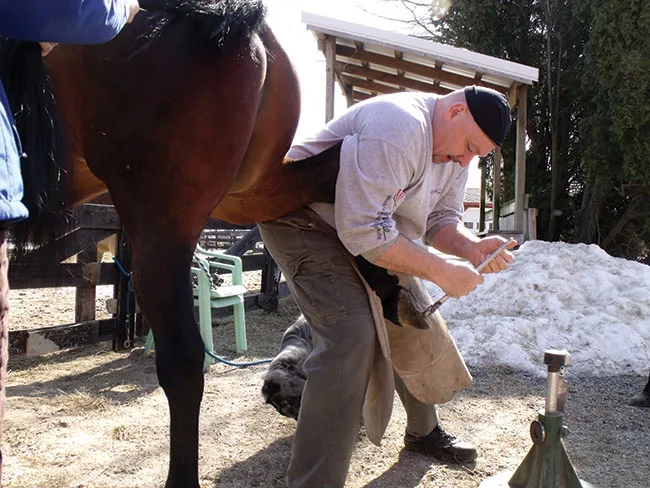American Farriers Journal
American Farriers Journal is the “hands-on” magazine for professional farriers, equine veterinarians and horse care product and service buyers.

Esco Buff, a farrier from Webster, N.Y., says taking a whole-horse approach to hoof care helps him treat underlying causes of problems, as well as symptoms.
The term “whole horse” has been used by many different equine professionals to describe a host of ideas and concepts. In recent years, the term whole horse has emerged again due to the fact that many professionals feel that the emphasis of treatment is focused more on symptoms rather than treatment of the insult or underlining source of the symptoms.
The term whole horse means taking a holistic viewpoint. A holistic viewpoint is based on the law of nature that implies that a being is a whole made up of interdependent parts. When one part is not working at its best, it impacts all the other parts. It simply means looking at the whole picture in order to restore soundness and wellness to the horse.
A holistic approach considers anything and everything that could affect a horse’s health. It means asking why the lameness is occurring, what is the original insult or root cause and how can we treat the cause as well as the symptoms, rather than just the symptoms alone.
A holistic approach can be accomplished in many different ways. Too often, individuals confuse holistic with alternative or complementary approaches. A holistic approach can be taken with traditional methods of treatment, alternative methods and/or anything in between. In reality, all equine veterinary medicine may be considered holistic in that it should consider all aspects of the horse in the context of its environment.
The same concept should also apply to the farrier. This means farriers should…